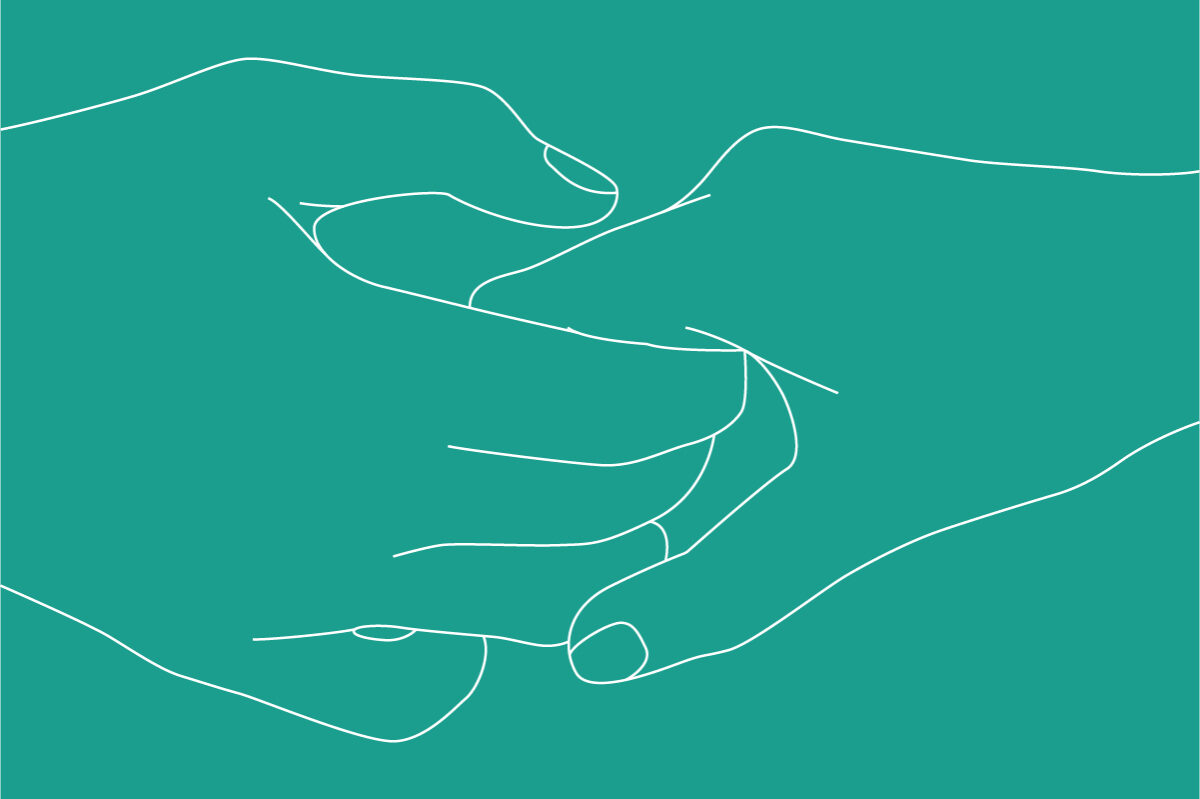
Supporting a Friend in an Unhealthy Relationship Takes Courage. Teens Say That Takes Practice.
We're working with One Love Foundation on a new game that builds on their mission to activate young people as agents of change in the work to end relationship abuse. Here's what we've learned about care and support from the teens we're co-designing with.
Adolescence is a time of rapid social development. The bonds teens make during this time play a crucial role in helping them begin to establish independence from family and make their way into the wider world. Healthy peer relationships are a reliable support for teens as they navigate and cope with the wonders and challenges that come with growing into young adulthood. Unhealthy relationships, on the other hand, can gnaw at self and safety and may have life-altering consequences.
Social and emotional skills are the building blocks of healthy relationships. Far from 'soft,' they are essential. At iThrive Games, we use play to build these crucial skills in teens to support their thriving as individuals, members of their communities, and members of the world at large. Our social and emotional learning games and tech tools nurture empathy and curiosity in young people while strengthening their ability to name and understand their emotions, and recognize and reduce unhealthy behaviors.
We are excited to continue our work supporting emotional resilience in teens with a new collaboration with One Love, a foundation working toward a world of healthier relationships by educating and empowering young people to bring life-changing relationship education to their communities.
One Love shares immersive content as part of its work to empower young people with the tools to identify unhealthy relationship behaviors. Unhealthy Connections is their latest public service announcement (PSA) campaign spotlighting unhealthy digital communication.
One Love is creating a game that builds on its mission of connecting young people to life-saving prevention education, empowering all who play it with the know-how and skills to have and advocate for healthy relationships. iThrive is supporting the design process with positive youth development insights that make the game a meaningful opportunity for teens to build social and emotional skills.
"Meeting teens where they are means meeting them in the digital spaces they spend time in and with the tools they are familiar with," shares Jane Lee, iThrive's Senior Director of Operations and Mental Health. "The game One Love is creating builds on what we already know about play and its unique ability to inspire young people to try on new ways of being and doing. The goal is to support One Love in creating something teens can take into their communities and use in their own personal lives."
Both iThrive and One Love center young people's genius and rely on their strengths, creativity, and influence to create tools with a wide-reaching impact. We're co-designing with teens to build nuanced understandings of how they view the work of helping a friend navigate an unhealthy relationship. Asked how they would define care and support in this circumstance, here are some the insights teens shared:
-
Care and support start with building knowledge and sharing resources. In our co-design sessions, teens who knew the 10 Signs of Unhealthy Relationships and completed a One Love workshop rated their confidence and responsibility to help a friend much higher than those who had not. "We know the signs and have the ability to help." "We all have a responsibility to do something when we see something wrong, especially for those of us who have the resources and the information." Strengthening teens' ability to recognize unhealthy relationship behaviors empowers them to intervene when they surface.
-
Being curious is a critical part of care and support. Teens shared that their genuine care for friends helps them gauge changes in their friends' emotional states and moods. "You want to see your friends happy, and when a friend is in an unhealthy relationship, they're not happy." "Friends can be losing parts of themselves; their identity." When friendships are close, care in them often looks like keeping a pulse on what's inhibiting thriving, and asking questions to help restore health.
-
Having the opportunity to role-play or practice having hard conversations would help teens build the courage to follow through. Teens shared that having the ability to practice what to say and see the possible outcomes of hard conversations with friends about their relationships would support them in building confidence and courage to help a friend. Games excel at providing these opportunities for safe practice. When young people are immersed in worlds that mirror their own, prompted to confront similar tensions, and exposed to all plausible what ifs, they build skills they can bring back to their real lives.
iThrive is eager to fold these insights into the game One Love is creating and help make a meaningful play experience where teens learn skills they need to actively take part in creating a healthier, safer, and more loving world. Follow One Love on Facebook and Twitter to be notified when the game is available for play!


